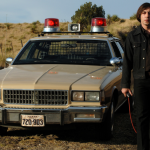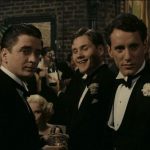Goodfellas (1990)
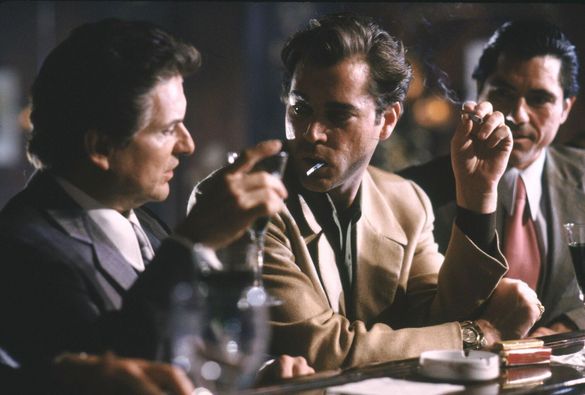
“Goodfellas”: A Gritty Masterpiece of Crime Cinema Directed by Martin Scorsese
Suggested videos for you:
Released in 1990, “Goodfellas” is a landmark film in the crime genre, directed by the legendary Martin Scorsese. Based on Nicholas Pileggi’s non-fiction book “Wiseguy,” the film chronicles the rise and fall of Henry Hill, portrayed by Ray Liotta, as he navigates the treacherous world of organized crime in New York City. With its dynamic storytelling, unforgettable performances, and innovative filmmaking techniques, “Goodfellas” remains one of Scorsese’s most celebrated works and a pivotal influence on the genre.
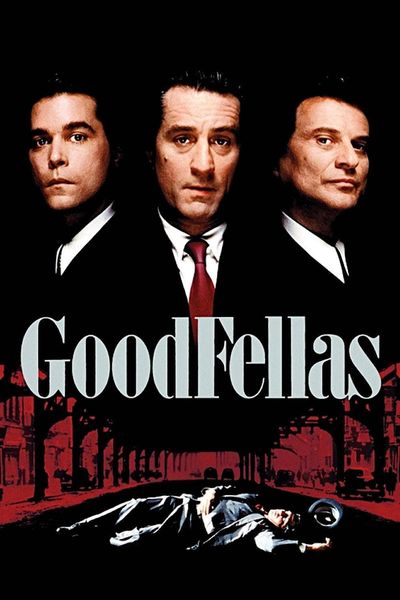
The narrative follows the life of Henry Hill from his childhood in the 1950s to his involvement with the Lucchese crime family. The film opens with Henry’s fascination with the mob lifestyle, leading him to become an associate of the family at a young age. As he rises through the ranks, he befriends iconic figures such as Jimmy Conway (Robert De Niro) and Tommy DeVito (Joe Pesci), whose volatile nature adds a layer of unpredictability to Henry’s life. The story deftly portrays the allure and excitement of the mob lifestyle, juxtaposed with the eventual consequences of violence and betrayal. As Henry becomes more entrenched in the criminal world, the film explores themes of loyalty, ambition, and the harsh realities of life in organized crime.
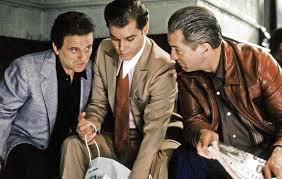
Martin Scorsese’s direction is characterized by his masterful use of visual storytelling and innovative techniques. The film is known for its dynamic editing, particularly the use of long tracking shots that immerse the audience in the characters’ experiences. One of the most iconic scenes features a single take that follows Henry and his girlfriend Karen (Lorraine Bracco) through the bustling Copacabana nightclub, showcasing the allure of the mob lifestyle. Scorsese’s use of music is also noteworthy; the film’s soundtrack features an eclectic mix of classic rock and pop songs that perfectly complement the narrative and enhance the emotional impact of key scenes.

“Goodfellas” is primarily classified as a crime drama, but it also incorporates elements of dark comedy and psychological thriller. The film’s exploration of the moral complexities of its characters sets it apart from traditional crime films that often glorify the gangster lifestyle. Scorsese delves into the psyche of Henry Hill, illustrating the internal conflicts and moral dilemmas faced by those involved in organized crime. The film’s realistic portrayal of violence and its consequences forces viewers to confront the darker aspects of the characters’ lives, highlighting the perils of ambition and the fragility of loyalty.
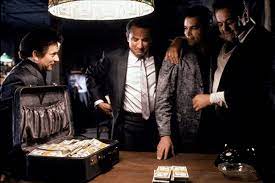
Ray Liotta delivers a career-defining performance as Henry Hill, capturing the character’s charm, vulnerability, and eventual disillusionment. Joe Pesci’s portrayal of Tommy DeVito earned him an Academy Award for Best Supporting Actor, showcasing his ability to oscillate between humor and terrifying volatility. Robert De Niro excels as the cunning and calculating Jimmy Conway, adding depth to the film’s exploration of loyalty and betrayal. The chemistry among the trio creates a palpable tension that drives the narrative forward, making their eventual fates all the more impactful.
Upon its release, “Goodfellas” received widespread critical acclaim, praised for its authenticity, direction, and performances. The film was nominated for six Academy Awards, including Best Supporting Actor for Pesci and Best Adapted Screenplay for Scorsese and Pileggi. Over the years, “Goodfellas” has earned its place as a classic of American cinema, influencing countless films and filmmakers in the crime genre.
In conclusion, “Goodfellas” is a gritty and immersive examination of the complexities of organized crime, masterfully directed by Martin Scorsese. Through its compelling narrative, innovative filmmaking, and powerful performances, the film invites audiences into the intoxicating yet perilous world of the mob. As it explores themes of loyalty, ambition, and the consequences of violence, “Goodfellas” stands as a timeless and essential work in the landscape of cinema, resonating with viewers long after the final frame. Its legacy continues to influence filmmakers and remains a touchstone for those who seek to explore the darker facets of human nature.



